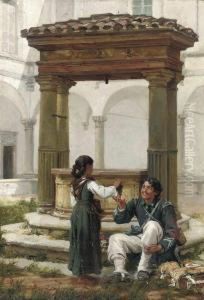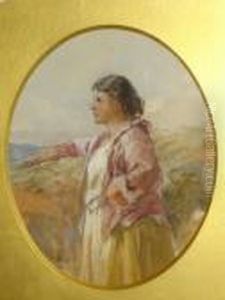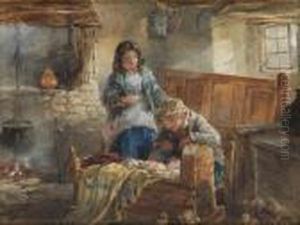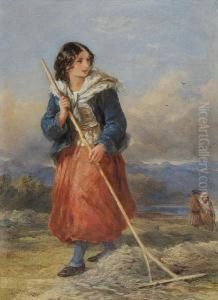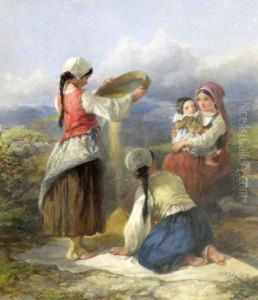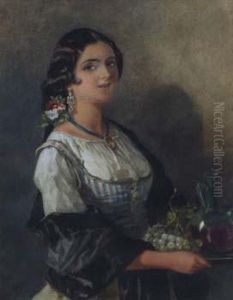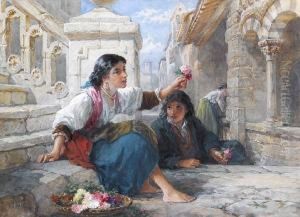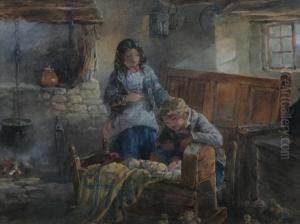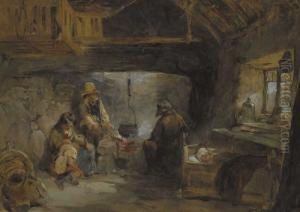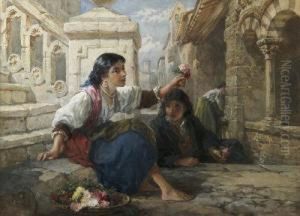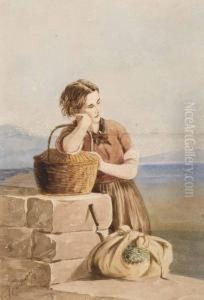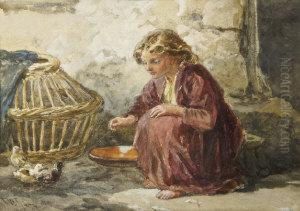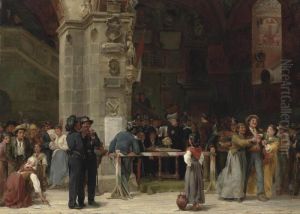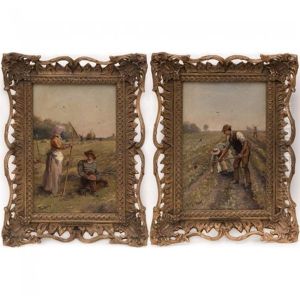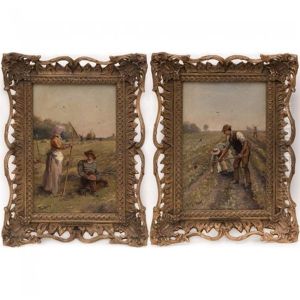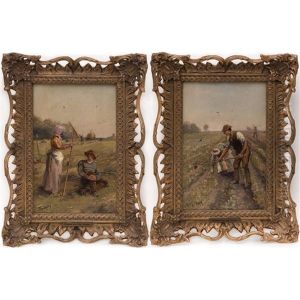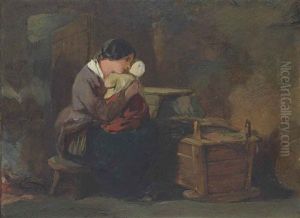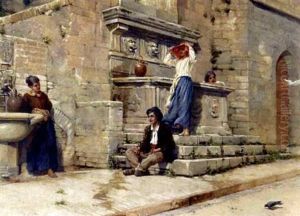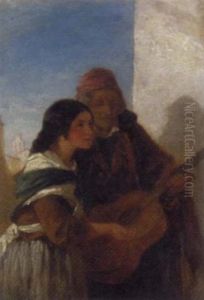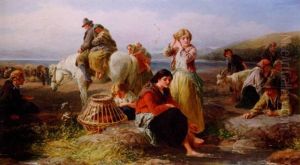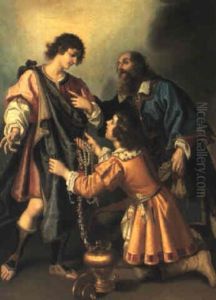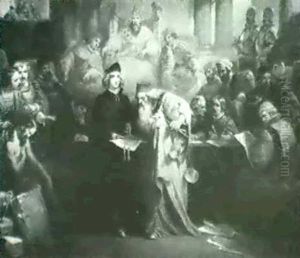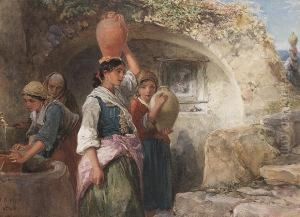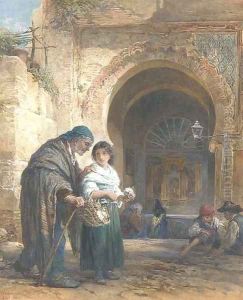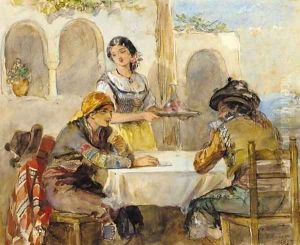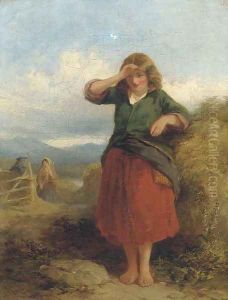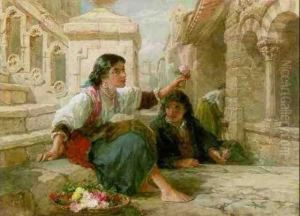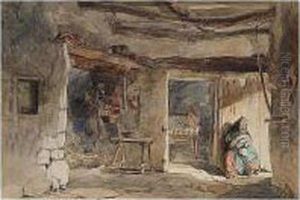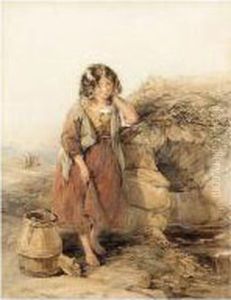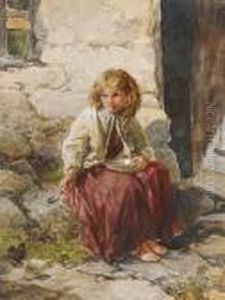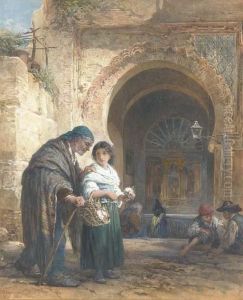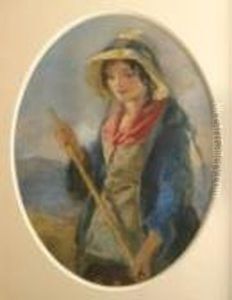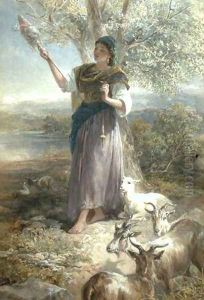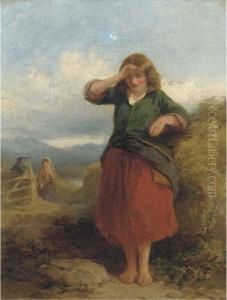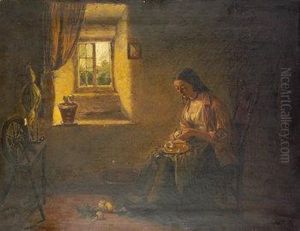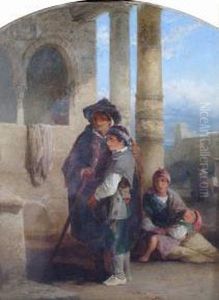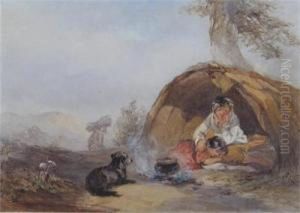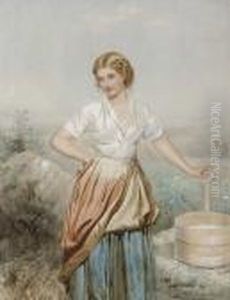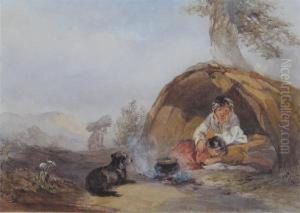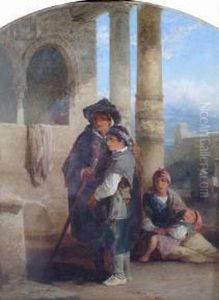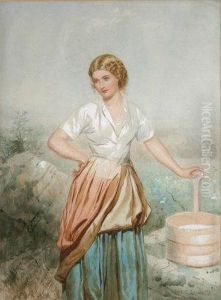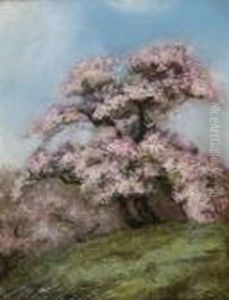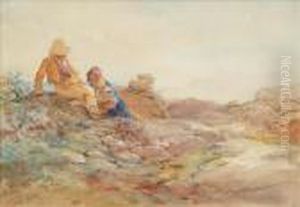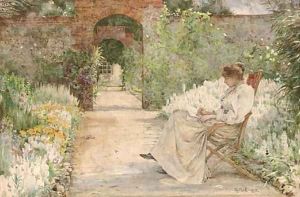Francis William Topham Paintings
Francis William Topham was a notable British watercolour painter and engraver born on January 4, 1808, in Leeds, Yorkshire. Initially, he was apprenticed to an engraver, but his interest in painting led him to pursue a career as an artist. Topham became particularly known for his depictions of rural scenes and life, which he rendered with a remarkable sense of realism and detail.
His early work primarily involved engraving, but he soon turned to watercolour painting. He became associated with the Royal Watercolour Society, an institution that played a crucial role in the development of British watercolour art. Topham traveled extensively, drawing inspiration from various regions of the United Kingdom, particularly Wales and Ireland, where he was drawn to the picturesque landscapes and the culture of the local people.
Topham's work was well received in his time, and he exhibited at prestigious venues such as the Royal Academy and the British Institution. He was also a member of The Etching Club, a group of artists who were dedicated to reviving the art of etching in Victorian England. His etchings and illustrations gained him a considerable reputation, and he worked on illustrations for books that became quite popular in the nineteenth century.
Topham's artistic output reflects the Victorian interest in rural romanticism and the idyllic portrayal of country life. He skillfully captured the essence of the landscapes he visited and the daily activities of the people, often imbuing his works with a sense of narrative and historical context.
Francis William Topham continued to work and exhibit until his later years. He passed away on March 16, 1877, leaving behind a legacy as a skilled painter and engraver who contributed significantly to the British art scene of the 19th century.
